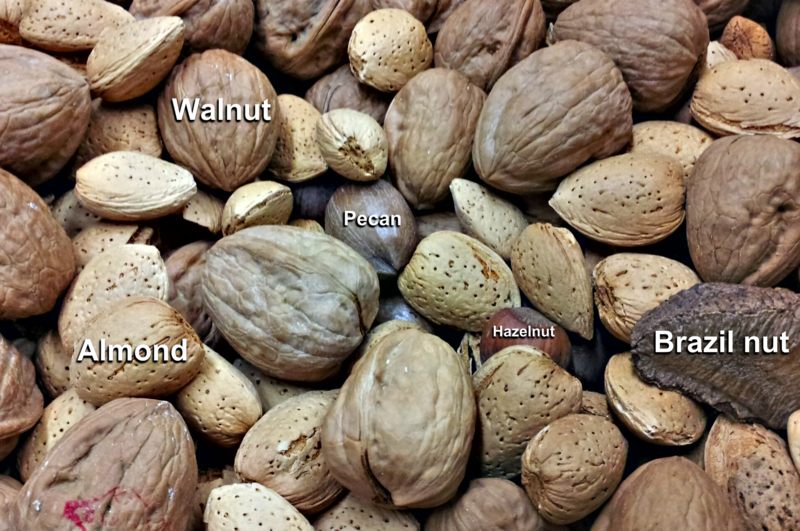Hazelnuts , walnuts, macadamia nuts: According to the German Society of Nutrition (DGE) everyone should eat a handful of nuts every day. Because the small nuclei are true power packs and rich in valuable fatty acids, minerals, vitamins and trace elements. Each nut has its own strengths.
 |
| Nuts |
Nuts reduce the risk of heart disease
These fatty acids, stressed the DGE with reference to controlled nutritional studies, have a positive effect on the cholesterol values , keep the vessels healthy and thus reduce the risk of arteriosclerosis and coronary heart disease. The regular consumption of nuts could even reduce the risk of a fatal heart attack by 39 percent and a non-fatal heart attack by 32 percent. A handful of nuts should be eaten daily according to the recommendation of the DGE. And the American Heart Association also recommends nuts as part of a healthy diet.
Macadamia nuts have the most omega fatty acids
All nuts contain omega-3 and omega-6 fatty acids, which help keep the vessels healthy. Macadamia nuts, however, have the highest percentage of these polyunsaturated fatty acids among all nuts. In addition, they are rich in B vitamins and minerals. But: Macadamia nuts also provide the largest calorie boost besides paranuts. 100 grams have about 700 kilocalories.
Walnuts are good vascularists
 |
| Walnuts |
Walnuts also belong to the vascularists because they are rich in valuable linoleic acid: 100 grams contain 7.5 grams of the valuable fatty acid belonging to the family of omega-6 fatty acids. Walnuts also contain plenty of tryptophan, which is not only calming, but is also converted into serotonin in the body and is lighter in tone. Ample tryptophan is, incidentally, also contained in cashews, which count as almonds to the stone fruits.
Nuts prevent hot-throats
In addition to healthy fats, nuts also contain a lot of secondary crops, dietary fiber, vitamins, minerals and trace elements. They are also good protein suppliers. As a result, they saturate and defend themselves as intermediate snapshots of hot-hunger attacks. They also provide the body with energy and promote concentration.
Peanuts have a high protein content
A particularly high protein content of 25 percent has peanuts, which are actually not nuts, but belong to the pod fruits. They are, therefore, well suited as small nibbles, when hunger is knocking. Also almonds, strictly speaking, belong to the stone fruits, saturate and dampen the hunger for carbohydrates.
Paranuts and hazelnuts: a protective shield for the body
Also paranuts are not real nuts, but count to the capsule fruits. They contain a great deal of selenium: six nuts bring about the 63 micrograms of the nutrient. According to DGE, adult men should take 70 micrograms of selenium per day, women 60 micrograms. Selenium is an important protective shield against free radicals and strengthens the body's defenses. Vitamin E is also important for the defense of aggressive substances. Vitamin E is particularly rich in hazelnuts. 50 grams cover the daily needs of an adult.
Maroons are real fiber packages
Marons have the lowest fat and caloric content of all nuts: 100 grams are just 200 kilocalories. They contain more than 40 per cent of carbohydrates and almost 50 per cent of water. And: If you nourish 100 grams, you cover almost one third of your daily dietary fiber.
Incorrect storage makes nuts rancid
To keep the nuts fresh for as long as possible, keep them cool, dark, dry and well packed. Because of the high fat content, they become fast rancid. They then smell and taste not only bitter and modish, but also form degradation products, which are partly harmful to health and can cause gastrointestinal upsets.

No comments:
Post a Comment